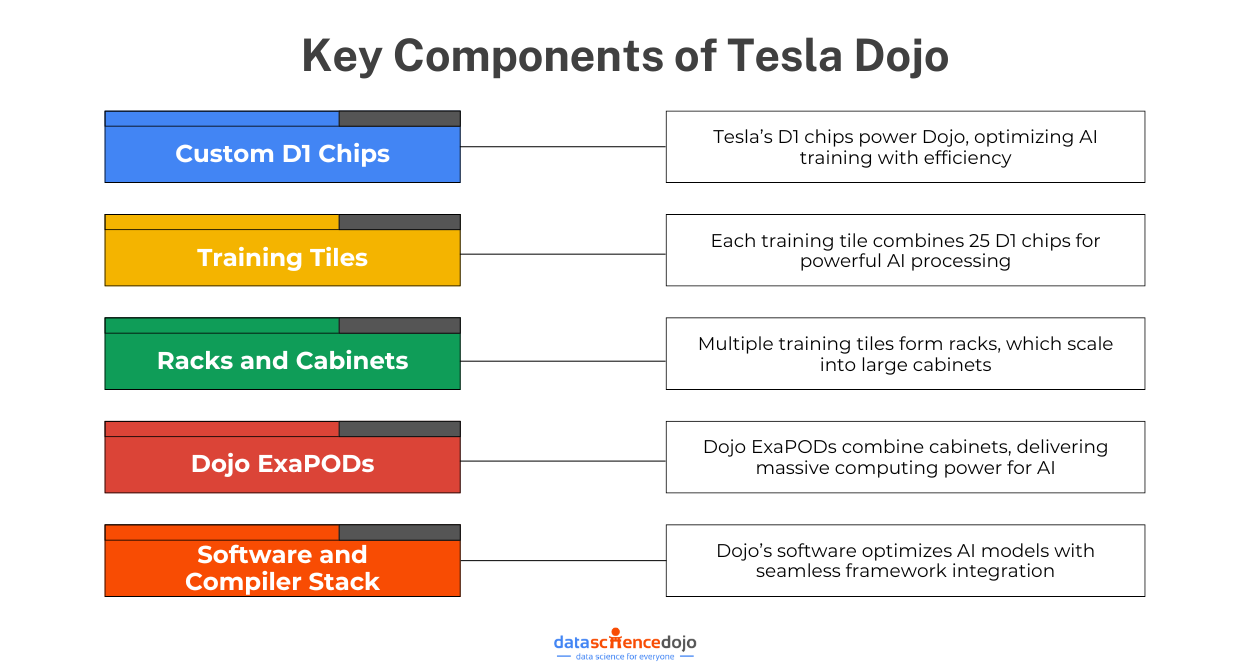Feedspot
2w
56

Image Credit: Feedspot
What is Tesla Dojo? The AI Supercomputer Powering Self-Driving Innovation
- Tesla Dojo is a revolutionary AI supercomputer designed for training deep neural networks for autonomous driving, reshaping Tesla's self-driving technology and setting new standards for AI infrastructure.
- It handles massive computational demands to process driving data, using cameras and neural networks for vision-based autonomous driving, unlike traditional LiDAR and radar systems.
- Key components of Tesla Dojo include Tesla's D1 chips, each delivering 362 teraflops of compute power, which eliminates the need for traditional GPUs like Nvidia's.
- Dojo consists of training tiles with 25 D1 chips each, forming racks and cabinets, ultimately creating the ExaPOD for 1.1 exaflops of compute power.
- Tesla's custom hardware and software in Dojo emphasize efficiency, scalability, and handling massive data for Full Self-Driving training, accelerating progress towards autonomous driving.
- Dojo accelerates AI training for self-driving, reduces dependency on Nvidia GPUs, and signifies a shift towards specialized AI hardware, creating a faster and more efficient system.
- By targeting self-driving AI specifically, Tesla Dojo focuses on high efficiency, contrasting with Nvidia's versatile GPU approach, leading to a unique battle in AI computing.
- Tesla's custom-built Dojo aims to lower training costs, increase energy efficiency, and redefine AI computing's future, challenging Nvidia's dominance in the market.
- Specialized hardware like Tesla Dojo enhances AI performance for specific tasks, inspiring innovation in industries like robotics and automation, setting a precedent for application-specific AI solutions.
- The emergence of Dojo highlights the importance of custom-built hardware in handling complex AI workloads efficiently, potentially leading to advancements across diverse fields.
- This shift towards specialized AI hardware driven by Tesla's Dojo could pave the way for faster innovation, reduced costs, and energy consumption, challenging existing industry leaders.
Read Full Article
3 Likes
For uninterrupted reading, download the app